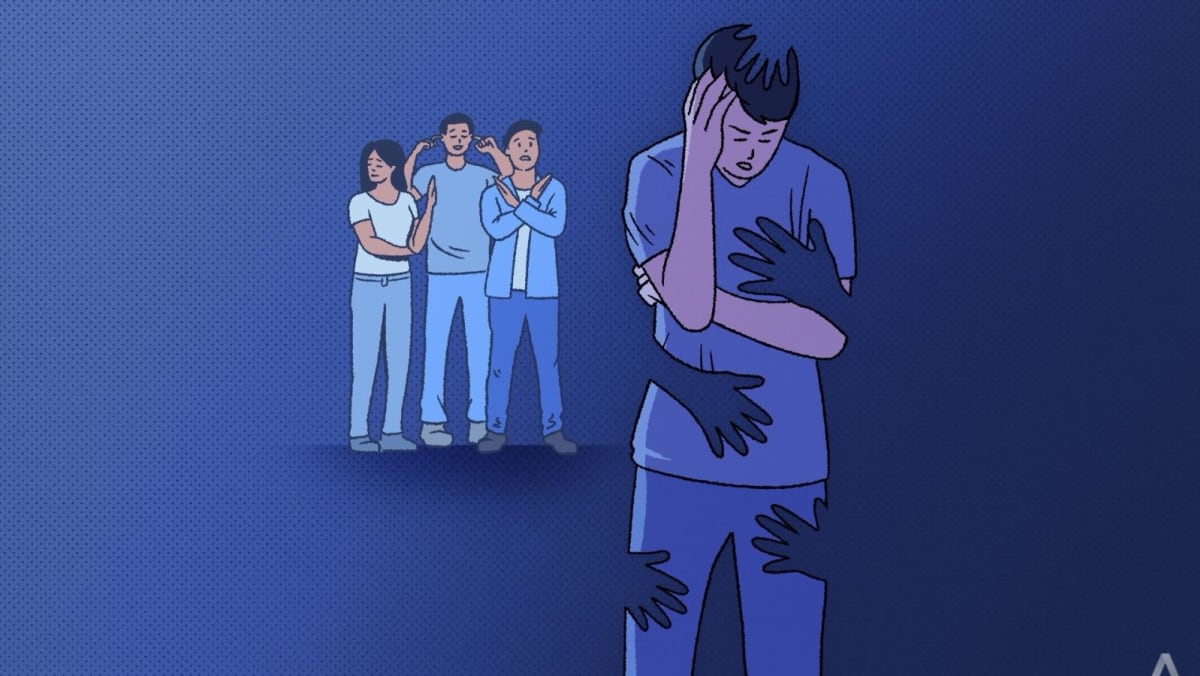The MRT train on the East-West Line was mostly empty that day in 2017.
Yet, a woman in her 30s chose to stand uncomfortably close to 22-year-old Mike (not his real name), who was leaning against a glass panel.
“She had places to stand, places to sit, but she chose to stand next to me,” he recalled.
He brushed it off at first, but as the train trudged along, he felt the woman’s hand touch his thigh. He turned his head to see that the woman had angled her arm backwards in an unnatural position to do so.
“At that moment, I was just baffled. My mind went blank and I couldn’t think. What am I supposed to do in this kind of situation? Who’s going to help a guy like me?” he said.
“Because of that, I didn’t react in any way. I just cowered in the corner as much as possible and I realised that the more I did that, the bolder she got.”
The woman retracted her hand from his thigh only when they reached a station where the train doors opened next to them and other passengers streamed in.
Mike took the opportunity to leave the train then.
When he confided to his friends about what had happened to him, their responses, regardless of gender, were the same – gently mocking or teasing, none taking the incident seriously.
“At least you gained something out of the experience.”
“Finally, someone’s interested in you.”
Because of their reactions, Mike, who turns 30 years old this year, felt that there was no point in reporting the incident because he believed that the authorities would just make light of the situation in the same way.
These comments also frustrated him immensely and contributed towards his “spiral into a dark place”, he said.
“It set an expectation in me that this isn’t a big deal. And even if I do share it with other people, no one is ever going to think that I was taken advantage of.”
For those reasons, till today, he has not sought professional counselling.
Mike’s story is indicative of a broader problem in society – male victims of sex crimes tend to go unheard, are made fun of or dismissed.
This was made clear in the social media comments on a news report earlier last month, about a woman who was charged after allegedly committing sexual offences against a boy who was her primary school student and stalking him.
Court documents stated that the 34-year-old Singaporean hugged the boy, kissed him, sat on his lap and ground her body against him in a car at a multi-storey car park between February and October 2019.
On social media, many commenters made light of it, saying, for example, that the incident was a “dream” or “fantasy” for many school boys, or that they were envious of the victim.
Experts told CNA TODAY that such trivialisation or dismissive responses can have an impact on survivors that is as profound as the assault itself.
Ms Anita Krishnan-Shankar, a psychologist and sex therapist at Alliance Counselling, said this is especially significant for male survivors since their experiences are rarely acknowledged.
“When a man finds the courage to speak out – often after years of silence – and is met with disbelief or trivialisation, the effects can be devastating,” she said.
“Such reactions reinforce feelings of shame, perpetuate the culture of silence and deeply undermine the survivor’s sense of self-worth.”
The latest figures from the Singapore Police Force show that the number of men who have had their modesty outraged has increased more than twofold since 2015.
